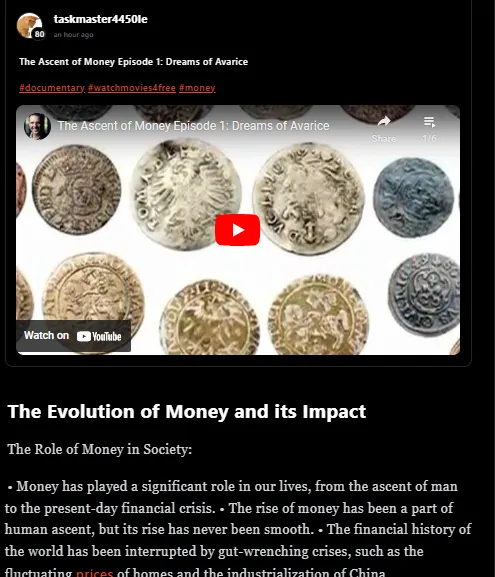There are a lot of directions LeoGlossary is heading in and things are building.
In the drive to get more content in the database, we are venturing in a number of directions. We have a number of initiatives that are expanding.
As most are aware by now, there is Music on Leo. This turns LEO into a front end for music that is hosted on YouTube. We are embedding them into Threads, creating something that has repeat value. By tying this into LeoGlossary, i.e. capturing the pages, we are building a library of music.
This has gotten a lot of focus over the last few weeks but it is far from the only thing being worked upon.
Each day, page of films and actors/actresses are posted. This is similar to the information provided by IMDB. For now, we are packing the pages with information that people, over time, find useful.
The goal is to turn these projects into something more interactive. Hopefully we get LeoNode this week and can start on part of the process.
For now, we keep pushing forward.

Documentaries
This is going to be part of a larger backdrop. We are going working on a few different things that will allow people access to video similar to music. This is going to take a while to build and we are experimenting with different ideas.
The first documentary was just done today. It took a few different tries but this is what it looks like.

Here is the link.
As we can see, the video is there along with a bullet point summary of what was discussed in the video. Also, there are links to other LeoGlossary pages, the standard by which we operate.
This particular video is about the history of money. There are another few episodes which will be done in the next 24 hours. This will be listed on this page, so it all ties together.
Here again, we have to be clear: the idea is to get people using what we are building within these databases. This is something that will be enhanced once the recommend feature goes live on long form content.
Take a second to think about having 250-300 documentaries. As the algorithm starts to learn what is available, it gets trained to make better recommendations. Suddenly, someone who watches a documentary is suggested another.
The great thing about content of this nature is it tends to not be time sensitive. While it can be dated, most of what is in the documentaries is applicable for viewing today, tomorrow, even years into the future.
Video
We are going to be moving more into the video realm in 2024. There are a couple phases just being started that will allow us to follow the same concept of building a library. To me, this is something crucial.
When we think about the world of broadcasting, what makes some of the incumbents so powerful? Think of Disney, Warner Bros, and Universal. These companies have libraries of content that reaches back 100 years. These video libraries of movies and shows have enormous value.
While we are not Disney, the concept is equally as valid. Much of what we see on YouTube is time sensitive. The same is true for a platform such as Twitter. As soon as a few hours passes, most of that information is history.
LeoGlossary is seeking to alter this a great deal by opening up the pathway to building a database of content. Even if some (much) of it is nothing more than an embedded video, it still carries the weight of being a front end that people can use. In the world of advertising, this is equally as valid.
That said, we are not solely looking at this path. The longer term plan operates with a much broader vision.
For now, we are relegated to getting as much content generated as we can. This will be the focus of 2024. Hopefully, a few features roll out that can enhance the interactive experience.
We will have to spend the next year building the library so it is large enoughfor people to utilize.
That is our first task.